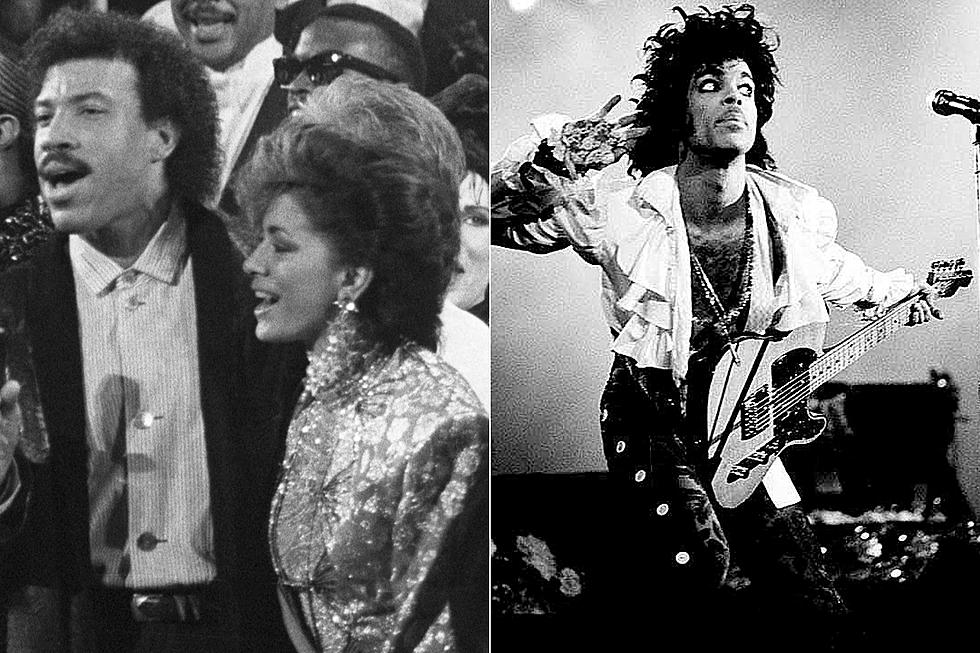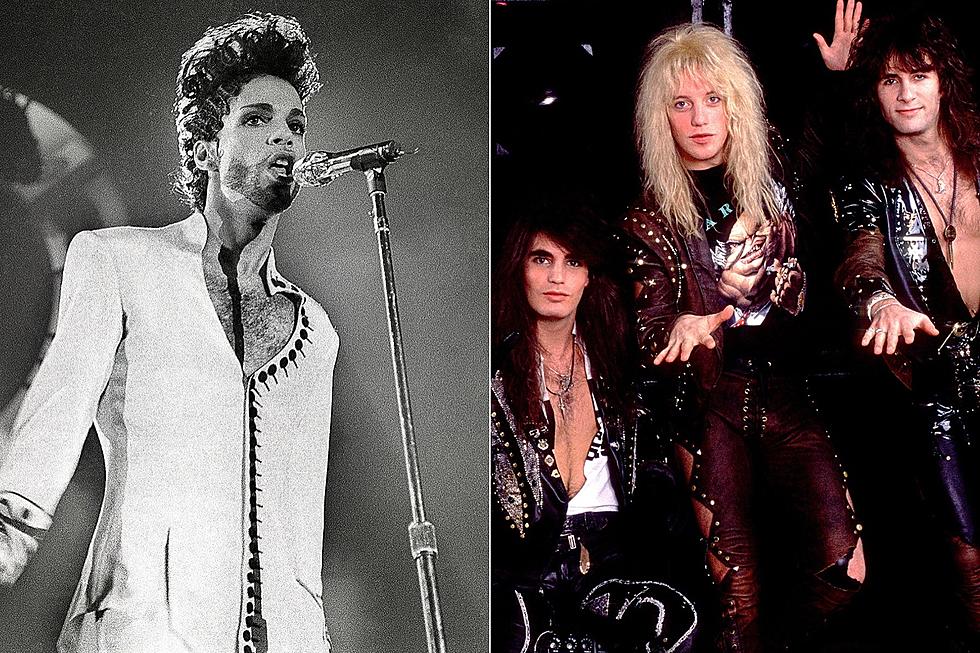
Prince Pushes Back Against Societal Ills on ‘Sign O’ the Times’
Prince had made topical music before, but never with these kind of raw specifics. The title track from 1987's Sign O' the Times felt personal, rather than ripped from the headlines. The attention to detail was striking, from the bleak urban struggles in its narrative to its similarly bleak musical setting.
"'Sign O' the Times' represented a departure for him lyrically; he was growing and trying new things lyrically,” engineer Susan Rogers once told Soul Train. "He had some new textures and new sounds there as well, but definitely the single 'Sign O' the Times' was social commentary – and it was a serious social commentary. More so than, for example, 'Ronnie Talk to Russia.'"
Working without the Revolution for the first time in years, Prince stripped almost everything away. The focus is squarely on the lyric, as Prince reckons with a series of societal ills.
"A sister killed her baby 'cause she couldn't afford to feed it," Prince sings, "and yet we're sending people to the moon." He was just getting started, as "Sign O' the Times" takes on the scourges of AIDS, street drugs, gangs and disasters both natural and man made in what ultimately amounts to an '80s update of Marvin Gaye's "What's Goin' On." Both retain a nervy topicality, even many years later.
"I think the relevance of Sign O' the Times must be rooted in the strength of the writing – lyrics, melodies, harmonies, and rhythm," Rogers said in a 2013 interview. "It is astonishing how well Prince's music holds up over the decades. Not only are the arrangements solid, but the writing is pretty invincible. Most of these titles can be stripped down to just their melodies or just their rhythm tracks and they would be compelling and interesting."
With the title track, that's basically what Prince did. Dabbling with the new technology found in the Linn LM-1 drum machine and the Fairlight, he took stock samples and twisted them into a cadence that could only emerge from his unique vision. Otherwise, this spare arrangement is only augmented by the occasional riffy outburst on guitar, and a bouncing bass line which darts in and out.
That intimacy is echoed in Prince's response to these swirling crises. He resists issuing a typical call to action, instead turning inward: Prince suggests, rather than partying the apocalypse away, that he should instead focus on finding love, getting married, having a baby. ("Hurry," he says, "before it's too late.")
It couldn't be further from the youngster who seemed to festishize our shared fates in "1999" and "Let's Go Crazy." This song, and this album, represented Prince's coming of age – as a songwriter and as a musician.
"So, now that he's shown the depth of what he can do, that he's hugely talented and very creative, now he has to show the breadth of it and how far he can go stylistically," Rogers added. "It was a serious attempt at social commentary and it was timely. So, he was expressing, 'Here's where I'm going, everybody.'"
Except, Prince being Prince, Sign O' the Times wasn't that at all. This gauntlet-tossing opening track wasn't followed by a string of similarly pointed commentaries, but the most varied, endlessly inventive album in his storied career. Some things, Prince seemed to be reminding us, never change.
"What people were saying about Sign 'O' the Times was, 'There are some great songs on it, and there are some experiments on it,'" Prince told Rolling Stone in 1990. "I hate the word 'experiment.' It sounds like something you didn't finish. Well, they have to understand that's the way to have a double record and make it interesting."
More From Ultimate Prince










